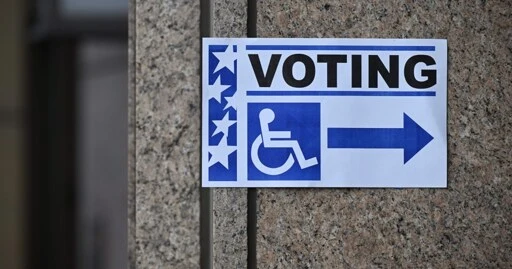Voters can't sue for disability discrimination, court rules
Voters can't sue for disability discrimination, court rules

Voters can't sue for disability discrimination, court rules

The Eighth Circuit Court of Appeals ruled on Monday that private citizens have no standing to sue for disability-based violations of the Voting Rights Act of 1965—the landmark federal legislation which protects, among other things, the right to voting assistance for disabled people and voters with low English literacy. The Eighth Circuit’s jurisdiction covers Arkansas, Iowa, Minnesota, Missouri, Nebraska, North Dakota, and South Dakota—meaning voters in those states will no longer have any direct remedy when those rights are violated.
All but one of the Eighth Circuit’s 11 judges were appointed under Republican administrations, including four Trump appointees from the president’s first term; any appeal by Arkansas United, the pro–voting rights nonprofit that brought the case, could set up the similarly conservative Supreme Court to extend the ruling to cover the country as a whole. (Some conservative justices have had surprising records on disability rights—but the Roberts Court is also infamously the bench that gutted the VRA.)